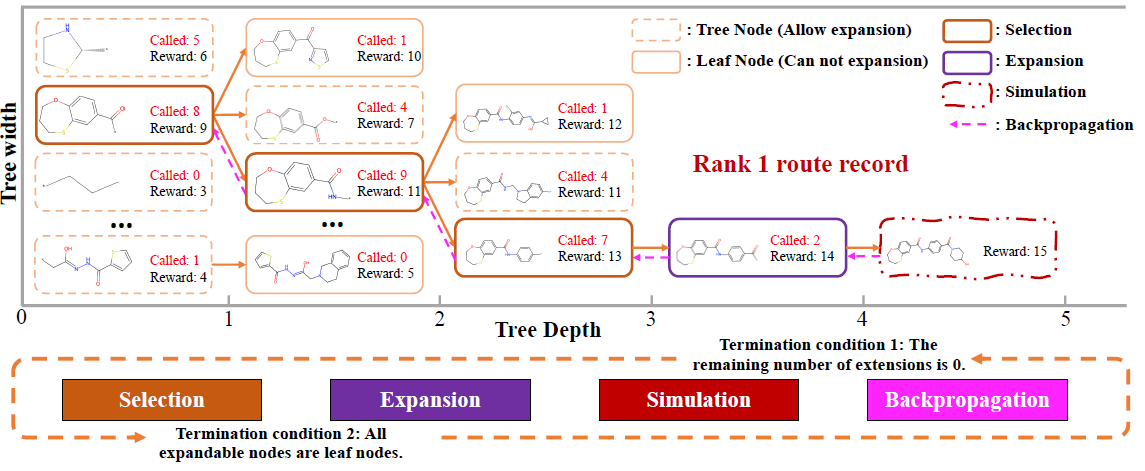Context-Aware Fragment Assembly via LLM-MCTS Fusion: A New Paradigm for Structure-Based Drug Generation
The rapid evolution of large language models (LLMs), exemplified by architectures such as ChatGPT and DeepSeek, has profoundly reshaped the natural language processing (NLP) landscape through synergistic integration of two paradigm-shifting technologies: self-supervised learning on massive textual corpora and reinforcement learning (RL) optimization frameworks. Leveraging the generalization capabilities demonstrated by pretrained LLMs, we firstly propose Fragment-based GPT (FRAGPT), a fragment-based molecular language model that learns a generalized chemical distribution from millions of SMILES while autoregressively assembling context-aware fragments into complete molecules.

Our proposed method introduces a collaborative framework named Hodor, integrating FRAGPT with Monte Carlo Tree Search (MCTS) to explicitly guide, filter, and optimize molecular outputs, thus achieving a more interpretable generation process. In this setting, each node encodes an intermediate (partial) molecule, and FRAGPT operates as an ‘action generator’, proposing chemically relevant fragments by leveraging learned fragment-level contextual features and the broader chemical space distribution. MCTS then leverages upper-confidence exploration to balance exploitation of high-value fragments against exploration of novel chemotypes, while its pluggable reward function conveniently incorporates domain-specific criteria, such as affinity, pharmacological properties and SAR.
